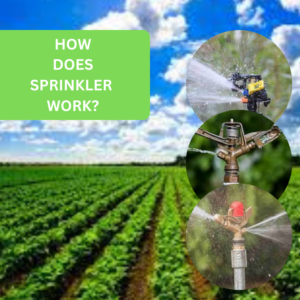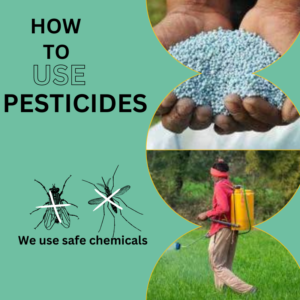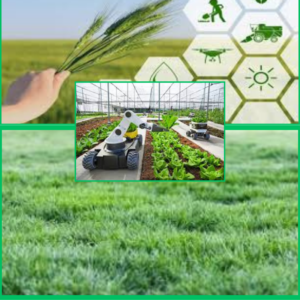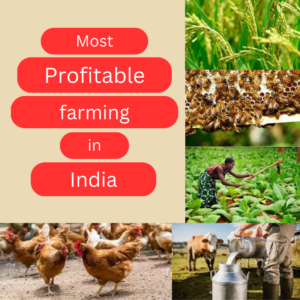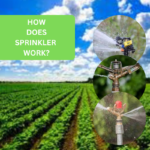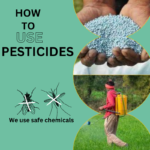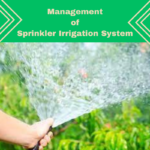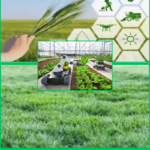In agriculture, the role of technology cannot be ignored. One such technology marvel that has significantly contributed to the success of farmers is the sprinkler system. Water Management with Sprinkler Irrigation has revolutionized how water is distributed across fields.
Sprinkler irrigation systems stand out for their precision in water distribution, a critical factor in crop cultivation. Water Management is crucial for sustainable agriculture and landscaping in regions prone to water scarcity or drought. At the start of the crop growing season, an irrigation manager must ensure adequate water is available for seed germination for excellent emergence and early crop growth.
Here are several strategies for effective water management with sprinkler irrigation.
- Choose the Right Sprinkler- choose the appropriate sprinkler system based on your landscape’s size and plant type.
- Use Smart Controllers- Small sprinkler controllers utilize date, soil moisture, and plant water requirements to adjust watering schedules automatically.
- Maintain Sprinkler System- Inspect and clean the Sprinkler nozzle periodically to prevent clogging, which can lead to uneven water distribution.
- Educate/ Train Personnel- Ensure those responsible for operating and maintaining the sprinkler system are trained in water efficiency. Educate them on the proper use of irrigation systems.
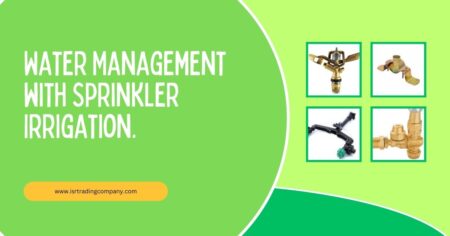
Water Management with Sprinkler Irrigation.
- Exploring Low-cost water-saving upgrades- Highlight affordable modifications owner can make to their existing sprinkler system to improve water efficiency and reduce water bills.
- Rainwater harvesting and Garden irrigation- including simple DIY methods for collecting Rainwater.
- Watering Practices for Healthy Lawns- How to Water lawns effectively to promote deep root growth and reduce water waste.
- Understanding Waterqing Needs of Different Plants- How to determine and meet the specific watering requirements of various types of plants.
- Benefits of using Timer Attachment on Sprinkler Irrigation- Define how timers can help automate watering schedules, save time, and ensure plants receive water at optimal times.
- Way of Water Management- There are various ways available through which we can manage water. The major ways of water management include recycling and treating wastewater. By controlling these systems, we can ensure water does not go to waste and avoid unnecessarily depleting water supplies. Most importantly, conserving water is essential at every level.
- Drip Irrigation in Arid Regions- Drip irrigation delivers water directly to the plant roots. This Method allows farmers to grow a variety of crops with limited water resources, improving water use efficiency and crop yields.
- Precision Irrigation in Wheatbelt Region- Wheatbelt Region, Which experiences dry conditions and variable rainfall, farmers have adopted precision irrigation systems using both center-pivot drip irrigation. Those Reducing water wastage and optimizing crop production.
- Microsprinkler System in Orchard Crops– Almond, Citrus, and Grapes crops use Mircosprinkler. those sprinklers deliver water close to the ground and the root. these sprinklers Promote efficient water use and reduce weed growth.
- Modernization of Irrigation System- farmers have modernized traditional irrigation methods with advanced sprinkler systems and drip irrigation.
- The modernization needs of irrigation system operational management in India- Although in India the major consumer of water is irrigated agriculture, the demands for various other competing and conflicting purposes are ever-increasing. Ensuring water supplies in sufficient quantity and desired quality, properly distributed in time and space, has become a complex task.



